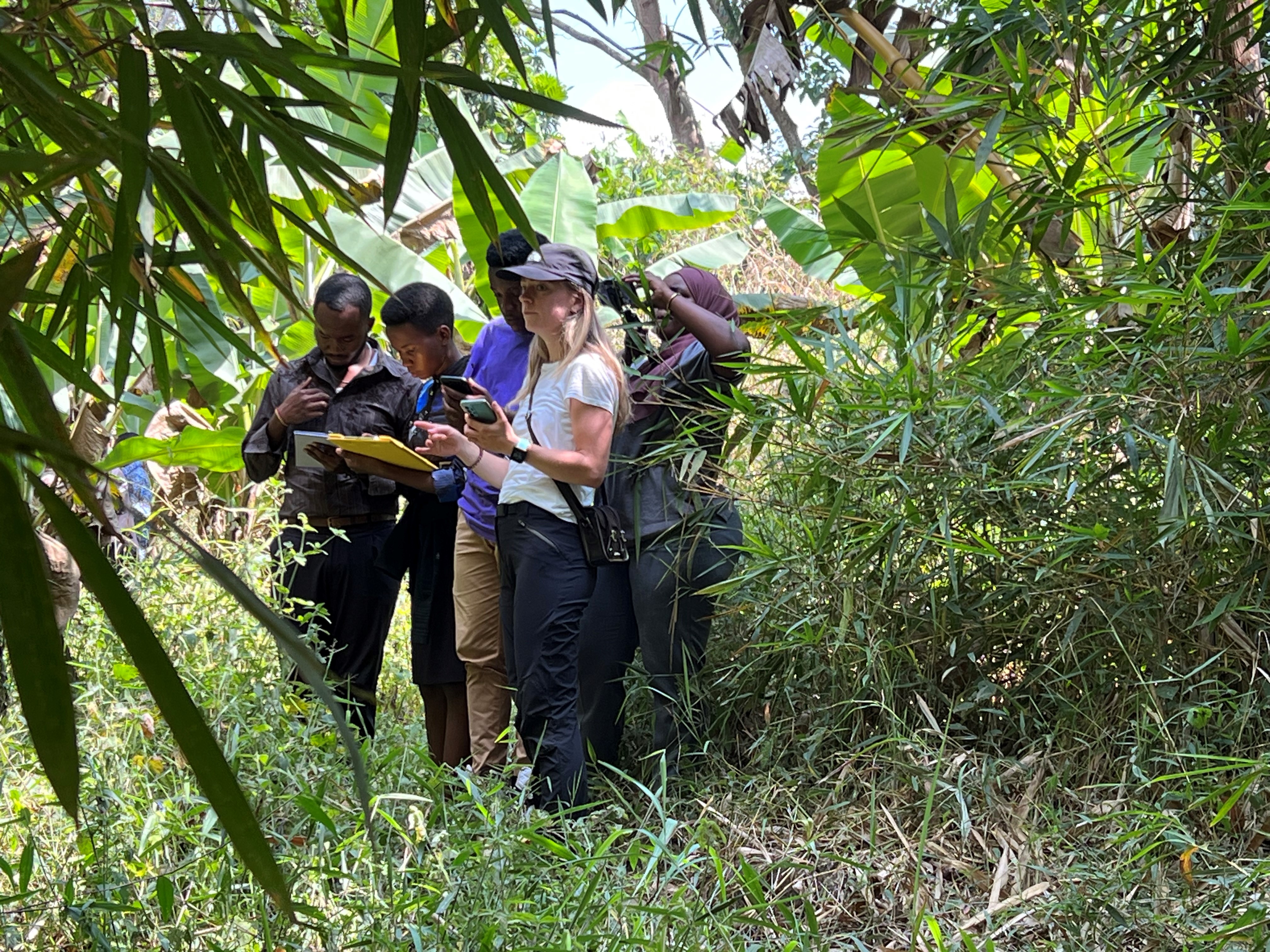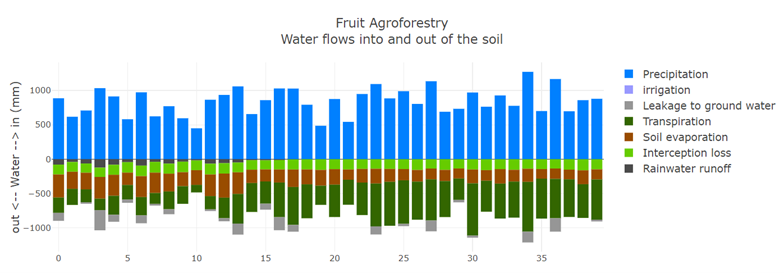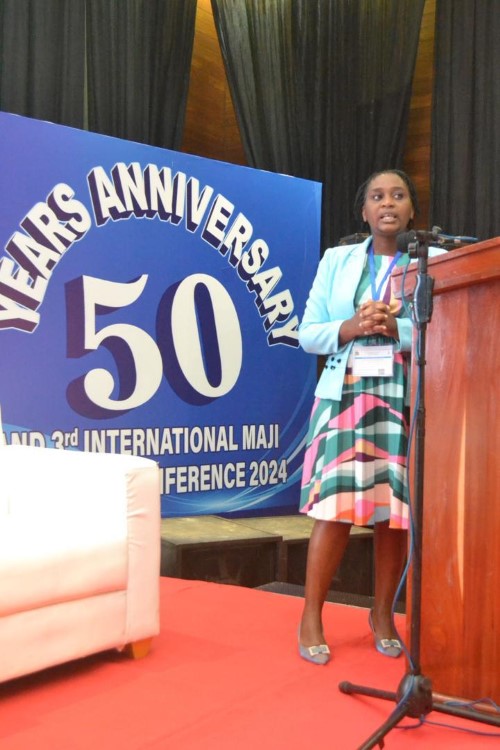Empowering rural communities: agroforestry innovations unveiled at the International Maji Scientific conference
02 February 2024In a groundbreaking presentation at the International Maji Scientific Conference in Dar es Salaam, Miriam Esanju shed light on the transformative potential of agroforestry solutions in the Mindu Dam Catchment Area (MDCA) of Tanzania. Representing the Wami Ruvu Basin, Esanju's focus on the NWB Fund Watershed Reforestation tool powered by FarmTree marked a significant step towards sustainable development and water conservation.
Agroforestry Solutions for a climateproof Mindu Dam Catchment Area
Miriam Esanju passionately presented agroforestry as a powerful nature-based solution addressing critical challenges such as soil erosion, rainwater harvesting, water conservation, and livelihood enhancement for the rural and farming communities in Mindu Dam Catchment Area (MDCA). The agroforestry systems are tailord to sustainable development in the region.

NWB Fund Watershed Reforestation Tool
A key highlight of her presentation was the NWB Fund Watershed Reforestation tool powered by FarmTree. This decision support tool played a pivotal role in bringing together all stakeholders to design customized agroforestry systems. From predicting water conservation impacts to preventing erosion and livelyhoods, the tool provides valuable insights for sustainable development in MDCA.

Impactful Insights Unveiled
Miriam Esanju emphasized three key areas of impact
- Water Conservation: Explore how the proposed agroforestry systems contribute to water conservation in MDCA.
- Livelihood Enhancement: Understand the positive impacts on the livelihoods of rural communities in MDCA.
- Erosion Prevention: Discover projections and insights on erosion prevention through innovative agroforestry practices.
Next Steps in Sustainable Development
- Establishing Nurseries: The project progresses with the establishment of nurseries featuring relevant plant species.
- Farmer Training: Local farmers will be empowered with the knowledge necessary for the successful implementation of agroforestry practices.
- Participative Monitoring System: A robust monitoring system ensures the effective implementation and success of proposed agroforestry systems through community participation.
- Seeking Support for Sustainable Practices
The presentation concluded by highlighting the importance of seeking support for the ambitious project:
Financial Backing: The Tool's projections not only offer insights but also clarity on required investments, facilitating the search for financial support, including payments for ecosystem services.
Celebrating Commitment to Sustainable Practices
Miriam Esanju and the entire WRM team's commitment to sustainable practices in MDCA. Their efforts aim to ensure climate-resilient Water, Sanitation, and Hygiene (WASH) services for the region. The presentation at the International Maji Scientific Conference unveils a promising future for the Mindu Dam Catchment Area, where agroforestry solutions powered by innovative tools pave the way for sustainable development and resilient WASH services. The journey continues with the establishment of nurseries, farmer training, and a robust monitoring system, all geared towards empowering local communities and preserving the region's natural resources.
Young Researcher Award Winner Miriam, will soon become our Yepper (Young Expert Professional). Congratulations!
